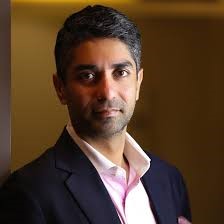Abhinav Bindra made history at the 2008 Beijing Games as his victory in the 10m air rifle men made him the first Indian athlete to win an individual Olympic gold medal.
It was also India’s first Olympic gold since the victory of the men’s hockey team at the 1980 Moscow Games.
Bindra’s achievement has sparked belief and enthusiasm throughout Indian sport in general – it was emulated at the Tokyo 2020 Games by javelin thrower Neeraj Chopra - and Indian shooting sport in particular.
And as the huge Indian team - having earned a record 22 Olympic quota places - approaches the Paris Games its talented young athletes have been paying tribute to the inspiration that first individual top-of-the-podium moment has created for future generations.
For Bindra, (pictured courtesy of Facebook), the victory in Beijing was the culmination - although not the end - of a career that had begun in the Olympic arena eight years earlier when he had competed at the Sydney 2000 Games as a 17-year-old.
Two years after being the youngest participant at the 1998 Commonwealth Games, Bindra was the youngest Indian participant in Sydney, where he finished 11th in qualifying, missing the final by just three places.
Four years later in Athens, having taken a pairs gold and individual silver at the 2002 Commonwealth Games in Manchester, Bindra had moved to another level as a competitor.
In qualifying he set an Olympic record of 597, equalling the world junior record he had established in 2001, although he eventually finished third behind China’s Qinan Zhu and Li Jie, who totalled 599 and 598 respectively. In the final, however, his form deserted him and he slipped to seventh place.
A back injury then took him out of competition for the best - or rather worst - part of a year, but he returned with a vengeance to take the world title in 2006.
Two years later in Beijing everything came together for him in the Olympic arena - but not until the very last moments.
He qualified fourth out of eight for the final, but once there he made his intentions clear with an opening effort of 10.7 and never scored less than 10.00 with every one of his 10 allotted efforts.
Even so he went into the final round level on 689.7 points with Finland’s Henri Hakkinen, who had topped qualifying on 598 as he finished one ahead of China’s Zhu Qinan and two ahead of Bindra.
Amid huge tension, Hakkinen scored a final 9.7 and Bindra produced his best score of 10.8 to take gold with a total of 700.5.
The Finn’s final slip dropped him to third place on 699.4 as Zhu, who scored 10.5 with his last effort, moved up to claim silver on 699.7.
India was in raptures.
In a recent social media post, Bindra - who is now one of the top influencers of sports policy in India and runs the Abhinav Bindra Foundation which supports educational and social improvements - reflected upon the momentous Olympic journey he had undertaken.
Recalling his longstanding friendship with sports journalist Sharda Ugra, he wrote: “Our story weaves through the highs and lows of an athlete’s life, particularly a poignant moment in Athens, where, despite breaking an Olympic record, I faced a heartbreaking defeat, finishing 7th.
“In the whirlwind of emotions that followed, feeling the weight of my world turned upside down, I confessed to Sharda: ‘I am done. I want to give up.’
“Yet it was in that moment of despair that Sharda, with the utmost kindness, told me what then seemed like nonsense. ‘You will win gold in Beijing.’ And as fate would have it, her words turned into a prophetic encouragement that led me to scream, just minutes after winning the Olympic gold in Beijing, ‘You were so right!’”
Two years later Bindra was the national flag-bearer at the Delhi Commonwealth Games, where he took the athletes’ oath before winning the hosts’ first gold medal of the Games in the air rifle pairs gold with Gagan Narang and adding individual silver.
He finished 16th at the London 2012 Games, but returned to the top of the podium at the 2014 Commonwealth Games in Glasgow where he won the 10m air rifle men event.
His final Olympic appearance at the Rio 2016 Games saw him come tantalisingly close to another medal as he finished fourth after losing a shoot-off to Ukraine’s eventual silver medallist Serhiy Kulish.

